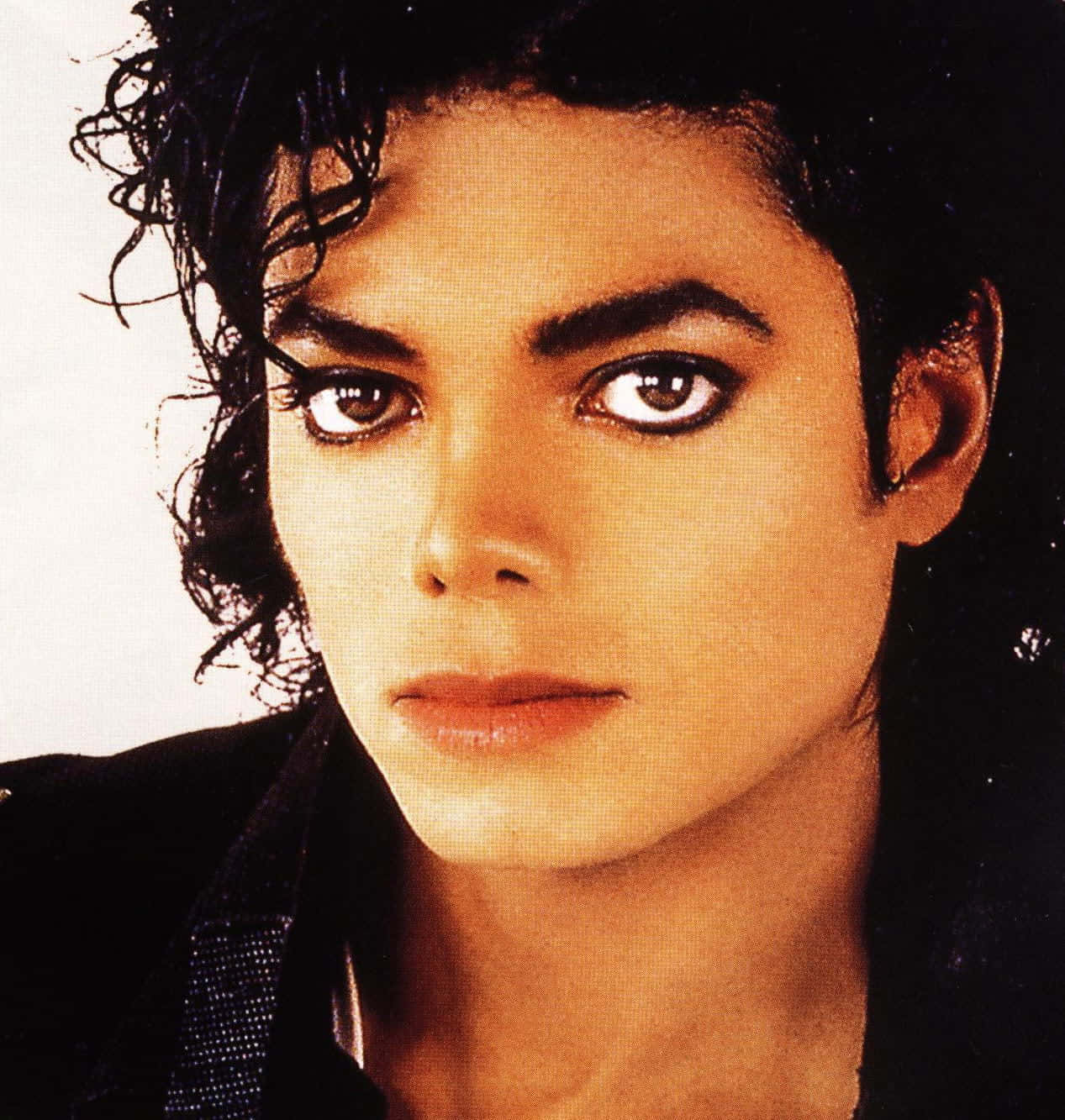Celebrity status, often glamorized and envied, paints a picture of boundless wealth and endless opportunities. From lavish homes to private jets, the perception is that once a person achieves global recognition, financial stability, if not obscene riches, is a given. However, beneath the dazzling facade of red carpets and million-dollar contracts, a stark reality often emerges: even the most monumental fortunes can evaporate with astonishing speed due to a series of poor financial choices.
The journey from immense wealth to significant debt is a cautionary tale, illustrating that money, in vast quantities, can present its own complex set of challenges. It’s a testament to the fact that earning millions is one thing, but managing and preserving it requires a very different skill set, one that many high-profile individuals regrettably lack. The consequences of unchecked spending, ill-advised investments, and costly personal disputes can be staggering, leading even the most successful figures to the brink of financial ruin.
In this insightful examination, we delve into 15 pivotal financial decisions that proved catastrophic for some of the world’s most iconic celebrities. These are not merely stories of misfortune but critical lessons in fiscal responsibility, highlighting the pitfalls that can arise when financial discipline takes a backseat to extravagance. Join us as we uncover the specific missteps that turned multi-million-dollar empires into significant liabilities, offering a valuable look into the financial perils that lurk even at the pinnacle of fame.

1. **Michael Jackson’s Excessive Lifestyle Spending: The King of Pop’s Unchecked Indulgence**
Michael Jackson, a titan in the entertainment industry, commanded global adoration and an astronomical income, reportedly earning an astonishing $100 million annually at his peak. Yet, his later years were marked by a financial unraveling that serves as a powerful cautionary tale. A primary catalyst for his spiraling debt was an undeniably excessive and unrestrained lifestyle, characterized by purchases that defied conventional fiscal logic and plunged him deep into the red.
His personal expenditures were nothing short of spectacular, encompassing everything from an impressive fleet of luxury cars to an entire private zoo housed at his famous Neverland Ranch. These weren’t mere occasional splurges but consistent, multi-million-dollar commitments that steadily drained his vast reserves. The sheer scale of these recurring costs, coupled with a seeming disregard for budgeting, created a perilous financial foundation that even his immense earnings struggled to sustain.
This propensity for opulent living meant that Jackson was perpetually “living beyond his means,” as the context clearly states. His income, however immense, was consistently outpaced by his outgoings, leading to a relentless accumulation of debt. By the time of his untimely passing in 2009, Michael Jackson was reported to be an astounding $300 million in debt, a figure that underscores the devastating impact of allowing personal desires to override sound financial management.
Despite his posthumous financial recovery, overseen by his estate, his journey to such significant debt highlights a critical lesson: even with monumental earnings, an unchecked lavish lifestyle can lead to an equally monumental financial collapse. The narrative of Michael Jackson’s personal spending is a vivid reminder that sustained wealth requires as much discipline in expenditure as it does in generation.

2. **Michael Jackson’s Neverland Ranch Investment: A Dream Turned Financial Burden**
Among Michael Jackson’s many high-profile expenditures, his beloved Neverland Ranch stands out as both a symbol of his unique persona and a significant drain on his finances. While envisioned as a fantastical sanctuary, a place where children could escape and joy could flourish, the reality of maintaining such an elaborate estate proved to be an overwhelming financial burden that profoundly impacted his overall wealth.
The sheer act of pouring “millions of dollars” into the ranch was a continuous, escalating investment that yielded little financial return in traditional terms. Beyond the initial acquisition cost, the property demanded immense sums for its upkeep, staffing, and constant enhancements—including amusement park rides, a zoo, and elaborate gardens. These were not investments designed for profit, but rather for personal fulfillment and an idealized vision, yet they carried a hefty price tag that steadily chipped away at his liquidity.
The decision to invest so heavily in Neverland, without a clear long-term financial strategy for its sustainability, exemplified a pattern of prioritizing personal desire over fiscal prudence. It became a sprawling fixed cost that generated constant outflows, contributing substantially to his mounting debt rather than providing a stable asset or income stream. This singular asset, while iconic, became a financial anchor pulling him deeper into distress.
Ultimately, Neverland Ranch became a powerful illustration of how a passion project, when unchecked by financial realities, can morph from a dream into a devastating liability. Its maintenance costs alone, combined with other extravagant habits, ensured that this magical kingdom played a pivotal role in the King of Pop’s eventual $300 million debt, cementing its place as one of his most significant financial missteps.

3. **Michael Jackson’s Lavish Video Production Funding: The $65 Million Creative Spree**
Beyond his personal lifestyle and property investments, Michael Jackson’s creative endeavors also contributed significantly to his financial challenges, particularly his approach to funding numerous elaborate video projects. As an artist known for pushing boundaries, his music videos were often cinematic masterpieces, but they came with an astonishingly high price tag that ultimately hurt his bottom line.
The context explicitly highlights that Jackson’s “love for the arts resulted in him funding numerous video projects that cost a whopping $65 million.” This figure represents an extraordinary investment in visual content, far exceeding typical industry budgets even for a superstar of his caliber. While these videos undoubtedly cemented his legacy as a visual innovator, the financial outlay was disproportionate to the direct commercial returns, especially as his earning power waned.
Such massive expenditures on artistic ventures, without a corresponding increase in overall revenue or a disciplined cost-benefit analysis, acted as another major drain on his resources. It underscores a pattern of prioritizing the grand artistic vision above all else, often at the expense of fiscal prudence. While an artist’s vision is invaluable, the financial implications of such large-scale, non-revenue-generating projects must be carefully managed to avoid crippling debt.
This $65 million commitment to video production was not an isolated incident but part of a larger tapestry of spending that demonstrated a lack of financial constraint. It illustrates how even core professional activities, when executed with unchecked budgets, can accelerate a celebrity’s journey toward financial precarity, adding another layer to the complex narrative of Michael Jackson’s immense yet fleeting wealth.

4. **Michael Jackson’s Extensive Legal Fees: The High Cost of Public Scrutiny**
The life of a global icon often comes with intense public scrutiny, and for Michael Jackson, this translated into protracted and incredibly expensive legal battles that severely impacted his financial health. Beyond his lavish spending habits, the necessity of defending his reputation and person in court became a significant and involuntary drain on his vast fortune, adding another critical layer to his financial woes.
Throughout his illustrious career, Jackson found himself “embroiled in several lawsuits,” a reality that invariably carries substantial legal costs. The most prominent among these was the “highly publicized child molestation case in 2005,” a legal ordeal that captivated global attention and demanded an immense defense. These types of legal challenges are not only emotionally taxing but also financially devastating, requiring top legal representation for extended periods.
The financial toll of these legal entanglements was staggering, with reports indicating that the King of Pop “reportedly spent over $20 million on legal fees to defend himself against the allegations.” This figure alone represents a significant sum for any individual, underscoring the relentless pressure his finances endured. Legal fees are often an unforeseen and uncontrollable expense, capable of quickly depleting even the deepest pockets, especially when dealing with high-profile, complex cases.
Therefore, the millions allocated to legal defense were not elective spending but reactive costs, forced upon him by external circumstances. While defending oneself is a fundamental right, the sheer scale of these expenditures exacerbated his existing financial difficulties, contributing significantly to the $300 million debt he carried at the time of his death. It serves as a stark reminder of the financial fragility that can accompany extreme fame.

5. **Nicholas Cage’s Profligate Spending on Assets: The Acquisition Spree of an A-Lister**
Nicholas Cage, once a fixture on Hollywood’s highest-paid actors list, commanded an impressive $40 million in earnings in 2009 alone. However, his financial trajectory took a dramatic downturn, largely fueled by an almost insatiable appetite for acquiring extravagant and often unusual assets. His “lavish lifestyle” was not just about day-to-day spending, but about purchasing a breathtaking array of properties and collectibles that rapidly consumed his vast fortune.
His collection of acquisitions was truly remarkable, featuring “numerous homes” scattered across the globe, each demanding considerable upkeep and property taxes. Beyond residential properties, Cage ventured into more exotic investments, famously purchasing a “private island in the Bahamas, costing him $3 million.” This alone highlights a tendency towards impulse and grand-scale acquisitions that went far beyond mere comfort or sensible diversification.
Further contributing to his asset-heavy spending was the ownership of “four luxury yachts, with a total cost of $20 million.” Yachts are notoriously expensive to maintain, staff, and dock, presenting ongoing liabilities long after the initial purchase price. This pattern of acquiring high-value, high-maintenance luxury items showcased a distinct lack of long-term financial foresight, transforming liquid assets into illiquid, depreciating liabilities.
The accumulation of such a diverse and costly portfolio of assets, while indicative of immense wealth, ultimately became a cornerstone of his financial downfall. These purchases, driven by personal taste rather than investment strategy, absorbed vast amounts of capital that could have been preserved or invested more prudently. His asset-heavy approach, without robust financial planning, became a significant contributing factor to his eventual bankruptcy.

6. **Nicholas Cage’s Accumulation of Costly Lawsuits: Legal Battles Eroding a Fortune**
Beyond his extravagant spending on tangible assets, Nicholas Cage’s financial stability was further undermined by a series of legal entanglements that proved incredibly costly. His journey to “financial downfall” was not solely self-inflicted through lavish purchases but also impacted significantly by the necessity of navigating “numerous expensive lawsuits,” which drained his resources and complicated his efforts to manage his wealth.
Legal disputes, particularly for high-profile individuals, often involve substantial fees for attorneys, court costs, and potential settlements. While the context doesn’t detail the specifics of each lawsuit, the sheer mention of “numerous” and “expensive” suggests a pattern of litigation that became a persistent financial hemorrhage. These were not just minor inconveniences but significant financial challenges that demanded attention and capital.
The cumulative effect of these legal battles was to divert funds that could have been used for investment, debt reduction, or or simply preservation of capital. Instead, a portion of his hard-earned millions was continually funneled into legal defense and resolutions, further accelerating his path towards bankruptcy. This highlights how legal exposure can act as an unpredictable yet potent threat to even the largest fortunes.
Ultimately, the burden of these lawsuits, when combined with his unparalleled spending habits, created an untenable financial situation. They underscore the importance of minimizing legal risks and having robust financial planning that accounts for potential unforeseen expenses. For Cage, these legal liabilities were a critical component in the erosion of his once-massive wealth, forcing him into a position where drastic measures were required to rectify his financial standing.
7. **Nicholas Cage’s Failure to Pay Taxes: The IRS’s Inescapable Debt**
Adding a critical, and often unavoidable, dimension to Nicholas Cage’s financial collapse was his severe issue with unpaid taxes. While lavish spending and lawsuits chipped away at his fortune, the intervention of the Internal Revenue Service (IRS) represented an inescapable and monumental debt that forced him to confront his fiscal irresponsibility directly, leading to significant personal and financial upheaval.
The context explicitly states that “The IRS also hit Cage with several years of unpaid tax bills totaling $13.3 million.” This substantial sum wasn’t merely a missed payment but an accumulated liability that indicated a prolonged period of tax non-compliance or severe mismanagement of his tax obligations. For any individual, let alone a high-earning celebrity, such a figure represents an immense burden that can quickly escalate due to penalties and interest.
The consequences of this tax delinquency were immediate and severe. “He had no option but to sell his personal belongings, including a treasured comic book, and take on many film roles to pay off his debts.” This highlights the drastic measures celebrities are sometimes forced to take when facing such governmental demands, liquidating cherished assets and undertaking a demanding workload simply to satisfy legal obligations.
Cage’s tax woes serve as a stark reminder of the fundamental importance of diligent tax planning and compliance. Ignoring or mismanaging tax responsibilities, regardless of one’s income level, can lead to crippling debt and forced asset liquidation. It was a pivotal financial decision—or rather, a lack of responsible decision-making—that played a crucial role in his declared bankruptcy and the subsequent hard work required to rebuild his financial life.

8. **Johnny Depp’s Lavish Lifestyle Spending: The $30,000 Wine Bill**
Johnny Depp, a cinematic icon renowned for his versatile roles, reportedly amassed an astounding $650 million throughout his illustrious career. Yet, despite these colossal earnings, the actor who once commanded $20 million per film found himself in a precarious financial state. His journey from immense wealth to significant debt serves as a stark reminder that sheer earning power alone cannot insulate against the consequences of unbridled extravagance.
A significant catalyst for Depp’s financial woes was an undeniably lavish lifestyle, marked by spending habits that defied conventional fiscal prudence. The actor famously allocated over $30,000 per month on wine alone, a figure that underscores a profound disregard for budgeting. This was merely one facet of his opulent existence, which also included an impressive array of private jets, luxury yachts, and multiple sprawling properties spanning the globe.
Such extensive recurring expenditures, rather than being one-off splurges, represented a continuous drain on his substantial reserves. Each acquisition and subsequent maintenance cost served to diminish his liquid assets, creating a financial structure that was disproportionately skewed towards outgoings. This pattern of prioritizing immediate gratification and personal indulgence over sustainable financial planning rapidly eroded his fortune.
Ultimately, Depp’s choices in personal spending illustrate a critical lesson in wealth management: even a fortune of hundreds of millions can be swiftly depleted when unconstrained by discipline. His story highlights the perilous intersection of immense celebrity wealth and a lack of fiscal foresight, where every luxury purchase chips away at the foundation of financial stability, eventually leading to dire consequences.
9. **Johnny Depp’s Costly Collectibles and Legal Settlements: The Unseen Financial Drain**
Beyond the daily extravagances, Johnny Depp’s financial landscape was further complicated by substantial, one-off expenditures on non-liquid assets and a series of high-stakes legal battles. These decisions, while varied in nature, collectively acted as powerful forces in his financial downturn, diverting immense capital away from productive uses.
His penchant for unique and expensive collectibles was well-documented. Depp poured considerable sums into acquiring rare books and art, holdings that, while valuable, often proved difficult to liquidate quickly when cash was needed. A particularly notable and costly personal expense was the $3 million paid for an event in 2005 to blast late journalist Hunter S. Thompson’s ashes out of a cannon, an act that speaks to a mindset of unlimited resources.
Adding to these discretionary, yet significant, outlays were the formidable costs of his legal entanglements. The highly publicized divorce settlement with ex-wife Amber Heard reportedly cost him millions of dollars, representing a direct and substantial financial hit that reduced his net worth considerably. Such settlements are not merely a division of assets but often involve significant lump sums or ongoing support payments.
Further exacerbating his situation was a lawsuit filed by his former business managers, alleging financial mismanagement. This legal confrontation ultimately resulted in Depp paying a staggering $25 million in settlement. These combined legal and personal financial obligations underscored a consistent pattern of capital erosion, proving that a lack of stringent financial oversight and complex personal disputes can be as devastating as unchecked spending.
10. **Mike Tyson’s Lavish Spending and Divorce Settlement: From Champion to Bankrupt**
Mike Tyson, the legendary former professional boxer and undisputed heavyweight champion, epitomized an extraordinary rise to fame and wealth, having earned an estimated $300 million over his career. Yet, his story is also a stark illustration of how quickly such colossal wealth can dissipate, culminating in his filing for bankruptcy in 2003 with a reported debt of $23 million.
A primary driver of Tyson’s rapid financial decline was an unrestrained “lavish spending on material possessions.” His acquisitions included a fleet of expensive cars, intricate jewelry, and a sprawling, opulent mansion. These were not modest indulgences but grand-scale purchases and ongoing maintenance costs that consistently outstripped even his considerable earnings, rapidly consuming his financial reserves.
Further compounding his financial woes was a costly divorce settlement. Tyson “lost $9 million in a divorce settlement,” a significant financial blow that directly contributed to his escalating debt. Divorce proceedings, particularly for high-net-worth individuals, invariably involve complex legal fees and substantial payouts, which can quickly erode even a multi-million-dollar fortune if not carefully managed or anticipated.
The trajectory of Tyson’s finances serves as a powerful cautionary tale, demonstrating that an athlete’s immense earning potential is often fleeting, and without stringent financial discipline, wealth can be lost as quickly as it is gained. His journey from peak financial success to deep debt underscores the critical importance of prudent money management, even for those at the pinnacle of their profession.

11. **Mike Tyson’s Managerial Mismanagement and Costly Legal Entanglements: Beyond the Ring**
Beyond the direct costs of lavish personal spending and divorce, Mike Tyson’s financial downfall was further accelerated by the cumulative impact of “legal troubles” and an underlying lack of robust financial management. These less visible yet profoundly impactful factors drained his resources and complicated any attempts at fiscal recovery.
Tyson faced significant legal battles, including a “conviction for rape, which cost him significant legal fees.” Such high-profile cases not only carry immense personal tolls but also demand substantial financial outlays for top-tier legal defense, court costs, and potential restitution or civil damages. These expenses are often unforeseen and uncontrollable, capable of rapidly depleting vast sums of money.
While the provided context doesn’t explicitly detail “managerial mismanagement” for Tyson, the general narrative of celebrities losing fortunes frequently involves inadequate oversight of their finances by themselves or their appointed managers. This lack of diligent supervision can lead to excessive expenditures, poor investments, or even outright financial malfeasance by those entrusted with their wealth, creating silent drains on capital.
Therefore, the combination of reactive legal expenditures and a likely absence of proactive, disciplined financial governance played a critical role in Tyson’s bankruptcy. His experience highlights how the unpredictable nature of legal challenges, coupled with potentially flawed advisory structures, can profoundly undermine the financial stability of even the most successful public figures, transforming a fortune into a liability.

12. **Celebrity Entrepreneurial Failures: When Brands Clash with Business Realities**
Many celebrities, inspired by the successes of figures like Michael Jordan or David Beckham, aspire to transcend their traditional roles and become business moguls. They aim to leverage their immense personal brands and “investing their salaried wages into growing business endeavors,” envisioning themselves as innovative leaders akin to Bill Gates or Warren Buffett.
The allure of entrepreneurship for those with established name recognition is undeniable. It promises continued wealth generation beyond their primary career and offers a platform to express new facets of their persona. Ventures in fashion, cosmetics, restaurants, or even film production are common pathways, using their celebrity status to gain immediate market traction and publicity.
However, the context starkly reveals that “Not all celebrities eventually succeed with their businesses and other related side ventures. Some celebrities either went broke or filed for bankruptcy as a result of dabbling with such side businesses or endorsements.” A prominent personal brand, while opening doors, does not inherently equip an individual with the acumen required to navigate complex business landscapes.
These failures often stem from a lack of genuine business understanding, an over-reliance on the celebrity’s face rather than a robust business model, or inadequate delegation to experienced teams. The transition from performer to entrepreneur is fraught with challenges, and without a solid grasp of market dynamics, operational logistics, and financial management, even promising ventures can quickly turn into significant financial liabilities.

13. **Ill-Advised Investments in Unfamiliar Sectors: Spreading Capital Too Thin**
A critical mistake observed in the financial journeys of some celebrities is the tendency to diversify their investments into sectors where they possess little to no expertise. While the intent might be to expand their financial empires, these “ill-advised expenditures” often lead to substantial losses that contribute directly to their financial distress.
The breadth of industries into which celebrities venture is vast, as evidenced by the context: “animation, publishing, fashion designing, cosmetics, consumer electronics, household items and appliances, cigarettes, soft drinks and alcoholic beverages, hair care, hairdressing, jewelry design, fast food, credit cards, video games, writing, and toys.” This wide-ranging interest, without focused expertise, becomes a liability.
Investing heavily in fields one doesn’t deeply understand, or without thorough market research and professional guidance, is inherently risky. Celebrities may be swayed by perceived trends or the glamour of a particular industry, rather than the sound financial principles that underpin successful ventures. This can result in capital being tied up in non-performing assets or businesses with unsustainable models.
Consequently, this practice of spreading capital across too many unfamiliar domains, or sinking substantial sums into speculative ventures, accelerates financial erosion. It underscores a fundamental flaw in their investment strategy: a celebrity’s fame cannot compensate for a business’s lack of viability or an investor’s lack of informed decision-making, ultimately making these “side businesses” significant money pits.

14. **Over-reliance on Personal Brand for Business Model: The ‘Famous for Being Famous’ Trap**
The phenomenon of “famous for being famous” extends beyond merely gaining celebrity status without traditional talent; it often permeates the business ventures launched by such individuals. When a company’s entire value proposition hinges solely on the celebrity’s fleeting public interest, it creates a profoundly fragile and unsustainable business model.
These businesses are constructed upon the precarious foundation of public adulation, where the celebrity’s image is the primary, and often sole, driver of sales and visibility. There is frequently a disconnect between the brand’s identity and the quality or necessity of the product or service offered, leading to a perception that the venture is merely a vehicle for “quick money,” as the context hints about endorsements.
The “pejorative” nature of being “famous for being famous” can easily translate into public cynicism towards their commercial endeavors. If consumers perceive the celebrity as lacking substantive talent or a genuine connection to their product, the business struggles to build long-term loyalty. A public scandal or a decline in popularity can swiftly dismantle the commercial appeal, leading to immediate financial losses.
Ultimately, businesses that over-rely on a celebrity’s personal brand without cultivating intrinsic value are vulnerable to market shifts and public sentiment. This approach exemplifies a critical misjudgment: believing that fame alone is a sustainable business asset. Such ventures often contribute significantly to the celebrity’s eventual financial distress, highlighting the dangers of building an empire on a superficial foundation.

15. **Lack of Strategic Adaptability in Celebrity Ventures: Failing to Pivot with the Market**A defining characteristic of many failed celebrity-backed companies is their inability to adapt to dynamic market conditions. Initial success, often propelled by the celebrity’s buzz, can obscure fundamental flaws in the business model or a lack of foresight regarding evolving consumer preferences and technological shifts.
A defining characteristic of many failed celebrity-backed companies is their inability to adapt to dynamic market conditions. Initial success, often propelled by the celebrity’s buzz, can obscure fundamental flaws in the business model or a lack of foresight regarding evolving consumer preferences and technological shifts.
For any business, especially in fast-moving consumer sectors like fashion, entertainment, or technology—areas frequently explored by celebrities—continuous innovation and responsiveness are paramount. However, many celebrity ventures appear to suffer from rigidity, failing to pivot their strategies, product lines, or marketing approaches when market trends demand it.
This inflexibility can stem from various sources: a lack of experienced operational management, an over-reliance on the celebrity’s initial vision without external validation, or simply an underestimation of the competitive landscape. When a celebrity-backed company cannot evolve, it quickly becomes outdated, losing relevance and market share to more agile competitors.
Ultimately, the failure to strategically adapt and innovate transforms what might have been a promising investment into a financial quagmire. These ventures become liabilities, draining capital and further contributing to the celebrity’s financial challenges. The lesson is clear: business longevity, regardless of who is backing it, hinges on dynamic responsiveness and an acute understanding of market evolution.
The captivating narratives of these celebrities, from Michael Jackson’s unprecedented spending to Johnny Depp’s legal quagmires and the broader landscape of celebrity entrepreneurial failures, offer profound insights into the precarious nature of immense wealth. They collectively underscore a critical, often painful, truth: celebrity status and vast fortunes do not guarantee financial stability. Instead, they often amplify the consequences of poor judgment.
What emerges from these accounts is a compelling lesson in fiscal responsibility, one that resonates far beyond the dazzling world of entertainment. Whether it’s the unchecked indulgence of personal desires, the miscalculated risks of entrepreneurial ventures, or the unavoidable costs of legal battles, the common thread is a lack of disciplined financial strategy. These stories highlight the imperative for robust financial planning, expert guidance, and a sober understanding of business realities, even for those at the pinnacle of global recognition.
In a world where fame can be fleeting and fortunes can quickly dwindle, the decisions discussed here serve as potent cautionary tales. They are not merely chronicles of loss, but valuable blueprints for avoiding similar pitfalls, reminding us all that true wealth preservation is less about how much one earns, and far more about how wisely one manages and protects it. The show business may be glamorous, but sound financial management is the only enduring star.







